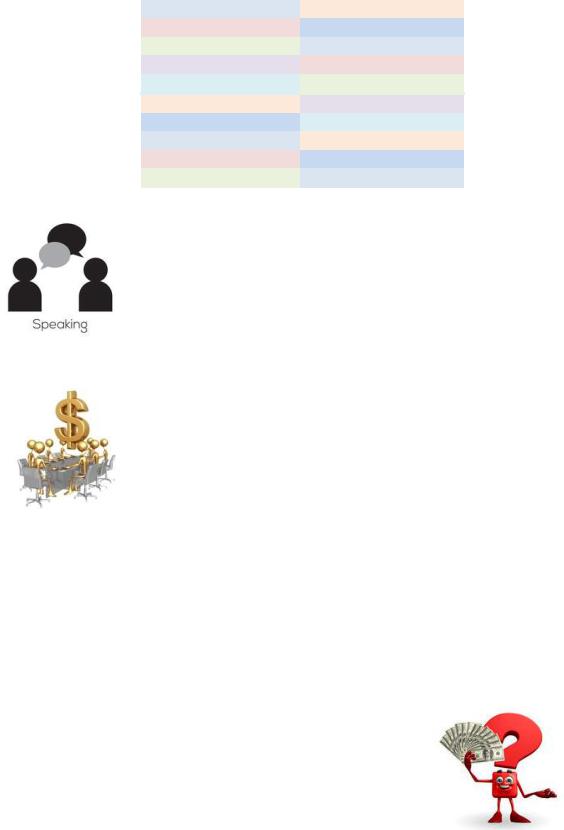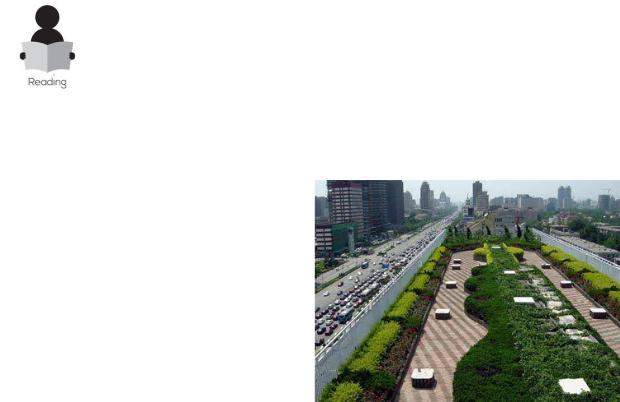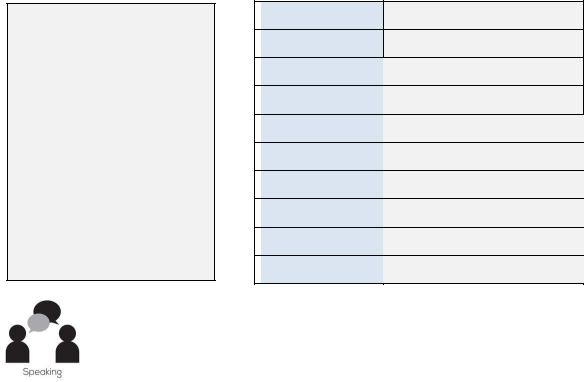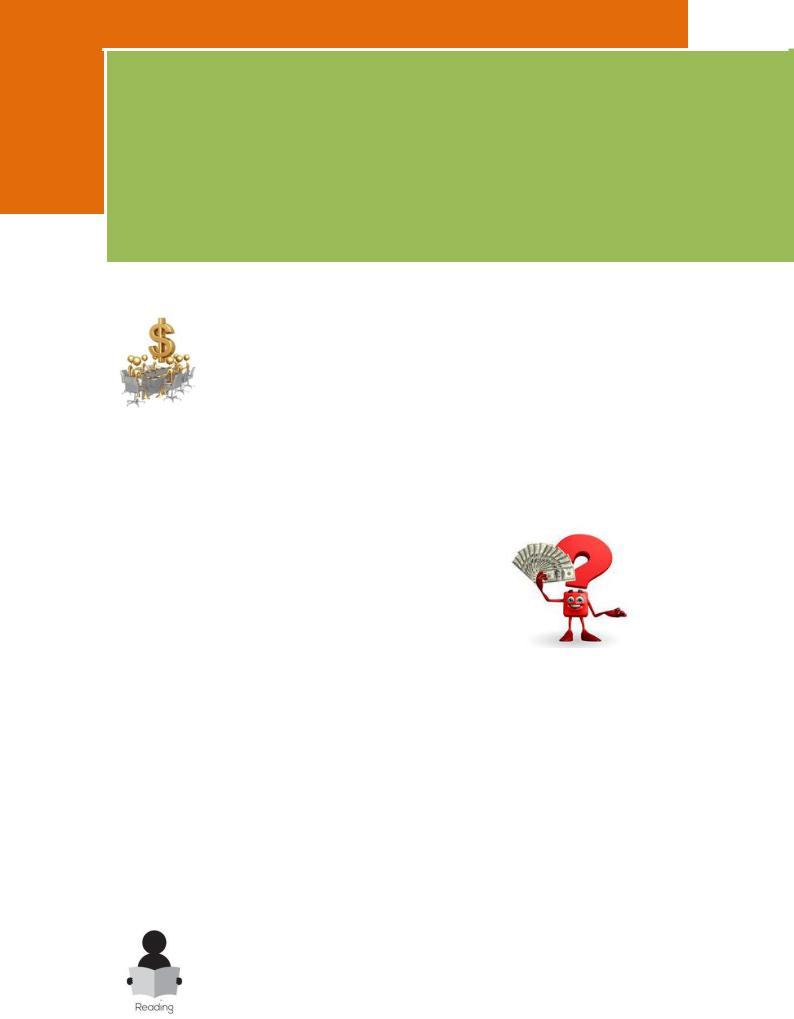
ПОСОБИЕ_English_for_economists_посл
..PDFanother state. This reality is of fundamental importance in the knowledge economy, whose primary scarce resources are brains, skills, and entrepreneurial spirit.
Those roots are the subject of the first principle of urban economics: cities’ size and location are key determinants of wealth. For example, in every European nation, the biggest city a century ago remains the biggest one today. The advantages of size and location are the outcome of decades, even centuries, of investments in infrastructure and in institutions.
The first principle of urban economics doesn‘t mean that every city‘s fate is preordained.
And that brings us to the second: when cities do experience dramatic changes in their growth
paths, the reason is almost always outside events or technological change. European postwar borders are an example of the way political conditions can shape growth. After the Iron Curtain was drawn in 1947, cities in West Germany had access to the growing European Economic
Community, while cities in East Germany didn‘t.
New transportation technology or infrastructure is an especially powerful agent of change, since it can alter a city‘s location advantage, turning a good location into a bad one or vice versa. The emblematic example is the construction of the Erie Canal in the 1840s, which gave New York City access to western markets and solidified its position as America‘s biggest city.
Also related to transportation is the third principle: accessible, well-connected cities exhibit higher growth. The city that succeeds in positioning itself as the meeting place and market center for a wider region has won a tremendously important battle, since transportation and travel hubs have historically emerged as dominant finance and business centers, attracting talent, money, and brains.
The fourth principle of urban economics is that every industry leaves its imprint on a city – and it isn’t always a good one. In North America and Europe these days, the best illustration of this principle is that cities with a legacy of heavy industry and large assembly plants generally exhibit slower growth. The first cities to industrialize, not long ago models of economic progress, are often among the most troubled today. Many have found it tough to move to the knowledge economy.
The fifth principle of urban economics: though much remains unexplained, good and bad policies do matter. Local business and political culture surely plays a part in a city‘s
growth.
(Source: http://www.city-journal.org/2013/23_1_urban-economics.html)
71

4.Answer the following questions.
1.Give your own reasons and ideas on the questions put in the beginning of the text.
2.What fact about the cities complicates the study of urban economies?
3.How many principles about the economies of cities can you point out?
4.How do size and location determine the cities‘ wealth? Give your own examples.
5.Why is new transportation technology or infrastructure an especially powerful agent of change?
6.Why is it said that the city succeeding in positioning itself as the meeting place and market center for a wider region has won a tremendously important battle ?
7.How do you understand «the knowledge economy»?
5.Say if the sentences concerning Text 5B are true or false.
1.Cities are more economic and political units than agglomerations of
people.
2.Cities‘ power to make economic policy is unlimited.
3.Economy‘s primary scarce resources are brains, skills, and
entrepreneurial spirit.
4.Cities‘ size and location don‘t influence their wealth.
5.Technological change can also shift cities‘ growth paths.
6.Transportation and travel hubs have historically emerged as dominant finance and business centres.
7.Industry does not influence a city‘s growth.
8.Local business and political culture unlikely plays a part in a city‘s growth.
6.Give English equivalents of the following words and word combinations from Text 5B.
Производить материальные блага, скопление людей, экономическое и
политическое образование, местная политика, сталкиваться с жесткой конкуренцией,
мобильные ресурсы, инновационная экономика (экономика знаний), ограниченные ресурсы, предпринимательская жилка (предприимчивость), траектория экономического роста, внешние события, железный занавес, наоборот, узловой аэропорт, сборочное производство.
72

7. Form word partnerships and use them in the sentences of your own.
pursue |
an opportunity |
meet |
money |
|
|
recognize |
a budget |
make |
attention |
set |
a risk |
own |
a dream |
grant |
the needs |
attract |
a company |
earn |
priorities |
cut |
a loan |
establish |
goals |
assume |
a profit |
8.Speaking. Discuss the following questions with your groupmates.
How is urban economics realized in your city or town?
What do local government and city authorities do to provide a better living?
Text 5C
1. Before you start.
How do you understand the term ―green‖ in relation to
economics?
What does green economy study?
Explain the term eco-friendly.
2.Read the words and learn them by heart. Make up your own sentences with them.
1.To improve – улучшать
2.Well-being – благополучие, состояние
3.To reduce – сокращать, уменьшать
4.To expose to – подвергать воздействию, подвергать
5.Efficiency – эффективность, действенность
6.To enhance – усиливать, увеличивать; усугублять
7.To decline – уменьшаться, идти на убыль, спадать
8.Slowdown – спад, снижение темпов
9.Implication – вовлечение, применение
73

10.Solution – решение
11.Wastage – отходы производства, отбросы
12.Excess – избыток, излишек
13.Contribution – вклад, взнос, сотрудничество
14.Sustainable – экологичный, рациональный
15.Decent – приличный, скромный
16.To mitigate – уменьшить, смягчать
17.To spell out – разъяснять, уточнять
18.Assets – имущество, капитал, активы баланса
19.Cradle-to-cradle – принцип регенеративного дизайна
20.Utility – практичность, полезность
21.Exposure – представление, выявление
22.Fluctuation – колебание, неустойчивость, текучесть
3. Read the text 5C, translate it and compare your ideas in ex.1 with the facts.
Green Urban Economy
A green economy improves human well-being and reduces inequalities
over the long term, while not exposing future generations to significant environmental risks and ecological scarcities. Cities and urban areas offer unique opportunities to realize a green
economy. Due to the geographical concentration of people, infrastructure, knowledge, economic activity and resources,
cities are able to achieve 'more with less' – or, in other words, to turn density and urban systems into eco-efficiency. Cities and a green urban economy can realize opportunities to enhance human well-being and local natural
resources, while reducing future costs,
http://www.spur.org/sites/default/files/
ecological scarcities and environmental risks.
A green economy takes into account the wider concerns over rising energy costs, energy security, environmental risks, limited natural resources, declining ecosystem services and fears over economic slowdown and uncertainty. It also considers the impacts of investments in
74

infrastructures and wider consumption and production cycles on the sustainability of natural resources and ecological services. Economic activities and their environmental implications need to be rethought, reshaped and remodeled to take into account future costs.
In its simplest expression, a green economy can be thought of as one which is low carbon, resource efficient and socially inclusive.
Eco-efficiency. Ecoefficiency means using fewer resources to produce more goods and services while at the same time reducing society‘s negative effects on the environment. Cities must become models of eco-efficiency by innovating solutions to wastage, excess and inefficiency.
Green economy principles. A green economy needs to be understood as a new way of looking at the contribution of economic activities to sustainable development and not as the replacement of sustainable development. A green economy needs to recognize the true value of ecosystems and natural resources, and the economic benefits of long-term ecologically and socially sound economic activities. A green economy can contribute to decent jobs and improving social conditions through job security, reasonable career prospects, and worker rights, while mitigating pollution and health effects, resource degradation and exploitative, harmful work conditions. Reducing poverty goes hand-in-hand with sustainable resource management.
Cities' opportunities to green the urban economy.
Doing more with less.
The global debate on a green economy can be spelled out locally. Due to the concentration of people, knowledge,
infrastructures, resources and economic activities cities offer
unique opportunities to do more with less and to be highly eco-efficient. Cities can benefit and realize opportunities from green economies by enhancing their environmental assets, and by improving their environmental, social and economic conditions. Not only national leaders, but also local leaders can reduce carbon emissions and pollution, enhance ecological services, and minimize environmental risks.
Green urban economy. A viable green urban economy needs to be based on cradle-to- cradle material cycles, more eco-efficient systems, and the creation of decent jobs. The economic models and analysis for decision making processes need to integrate environmental and social costs, while governance and management need support and enable green economic conditions.
75

Progressive urban areas and cities can benefit from being ‖green leaders‖ by attracting green economic activities to their cities. Employers and employees can directly benefit from the creation of new or the transformation of old jobs to decent green jobs.
Green cities. Urban form and density, land-use, integrated design strategies, technologies, and the construction of buildings, as well as urban utilities of energy, water, and waste systems can be improved to reduce resource and energy consumption. Social opportunities arise as cities start to benefit from cleaner urban environments and improved living conditions, lower exposure to resource scarcities, fewer price fluctuations and costs from energy wastage and more accessible public transportation.
(Source: Green Urban Economy // local2012.iclei.org)
4.Say if the sentences concerning Text 5C are true or false.
1.A green economy improves green vegetation in cities and towns.
2.A green economy takes into account energy costs, energy security and environmental risks.
3.Eco-efficiency means using more resources to provide more goods and services.
4.A green economy is understood as a new way of looking at the contribution of economic activities to sustainable development.
5.Creation of new green jobs can hardly bring benefit to employers and employees.
5.Answer the following questions.
1.What is a green economy?
2.How can cities achieve ‗more with less‘?
3.What does a green economy take into account?
4.What is a green economy in its simplest expression?
5.What does eco-efficiency mean?
6.How can cities become models of eco-efficiency?
7.What does a green economy need to recognize?
8.How can you define «a green city»?
6.Give English equivalents of the following words and word combinations from Text 5C.
Благосостояние населения, сократить неравенство, значительные экологические
риски, экономическая активность, добиваться большего с меньшими затратами, сократить
76

экологические риски, увеличивающиеся энергозатраты, ограниченные природные ресурсы, принимать во внимание будущие расходы, социально ориентированный,
негативное влияние общества на окружающую среду, устойчивое развитие, социально устойчивый, вредные условия труда, сокращение бедности, сокращать выбросы углерода.
7. Complete the following table.
Verb |
|
Noun |
|
Adjective |
|
|
|
|
|
qualify |
|
|
|
|
|
|
|
|
|
|
|
promotion |
|
|
|
|
|
|
|
|
|
|
|
employable |
|
|
|
|
|
|
|
determination |
|
|
|
|
|
|
|
apply |
|
|
|
|
|
|
|
|
|
|
|
|
|
authorized |
|
|
|
|
|
base |
|
|
|
|
|
|
|
|
|
|
|
competitor |
|
|
|
|
competition |
|
|
|
|
|
|
|
|
|
|
|
|
recruit |
|
|
|
|
|
|
|
|
|
|
|
|
|
required |
|
|
|
|
|
8. Speaking.
What do you personally do to reduce human‘s harmful effect on the
environment? Discuss it in pairs.
77

FINAL TASKS
1. Fill in the gaps using the words below:
1. Most people prefer to live in ______ areas. 2. ______
way of life means living in the countryside and having your own house. 3. We are concerned about our children‘s ______. 4. Your opinion will not ______ my decision. 5. The remote desert area is
______ only by helicopter. 6. ______ of stress in your life can lead to problems with health. 7. During the crisis, oil prices ______ between $20 and $40 a barrel. 8. The number of tourists to the resort ______ by 10% last year. 9. Prices for the apartments ______ according to the type of room you require. 10. Countries in modern world are greatly ______.
2.Translate the following sentences into English.
1.Городская жизнь очень интересная и динамичная. 2. Выполните упражнение по данному образцу. 3. Ее эмоциональное состояние оставляет желать лучшего (leaves much to be desired). 4. После окончания университета мы будем искать работу. 5. Мне нужно приличное место для жилья. 6. Тебе следует улучшить твой английский. 7. Компания сообщила о небольшом спаде в своих прибылях. 8. Он внес огромный вклад в успех этого проекта. 9. Как эти изменения (changes) повлияют на нас? 10. Благодаря современным методам строительства количество рабочих было сокращено с 40 до 25 человек.
3.Fill in the gaps with necessary prepositions.
1.You should pay for the goods ______ 20 days. 2. If you concentrate ______ the problem, you will find the solution. 3. She asked the bank ______ the financial support but they refused. 4. We are working ______ increasing our profit. 5. He has enormous influence ______
her. 6. We can‘t rely ______ his information because it‘s not checked out. 7. You can refer
______ the sources of Internet to write your report. 8. I don‘t want you to interfere ______ my business. 9. This company has a significant control ______ the market. 10. What price do you charge ______ this car?
78

4. Match the following words with their synonyms.
1. to flourish |
a. spot |
|
|
2. welfare |
b. to vary |
|
|
3. dull |
c. to refuse |
|
|
4. dot |
d. donation |
|
|
5. to declare |
e. boring |
|
|
6. to fluctuate |
f. to thrive |
|
|
7. to decline |
g. close |
|
|
8. contribution |
h. crafty |
|
|
9. near |
i. to state |
|
|
10. cunning |
j. well-being |
|
|
5. Match the following words with their antonyms.
 1. accessible
1. accessible
 2. to decrease
2. to decrease
 3. contrary
3. contrary
 4. invisible
4. invisible
 5. ancient
5. ancient
 6. behave
6. behave
 7. shallow
7. shallow
 8. true
8. true
 9. within
9. within
 10. strong
10. strong
6. Speaking. Make a presentation on the following topic.
|
Describe your city or town from the point of view of the urban economist. |
||
|
Speak about the following issues: |
||
1) |
City‘s size and location; |
4) |
Presence of the business (large and small); |
2) |
Main industries; |
5) |
Housing policy; |
3) |
Transport accessibility; |
6) Local policy. |
|
Give figures and explanations. Compare your city with other cities (both Russian and foreign).
79

Unit 6.
Principles of marketing
Text 6A
1.Before you start.
What is the marketing mix?
What is the personal value equation?
2.Read the words and learn them by heart. Make up your own sentences with them.
1.Creating – создание
2.Communicating – коммуникация, взаимодействие
3.Delivering – доставка
4.Exchanging – обмен
5.Domain – сфера, область, территория, домен
6.Value – ценность
7.Collaborating – сотрудничество
8.Offering – предложение
9.Supplier – поставщик
10.Customer – потребитель
11.Trading – торговля, коммерция
12.To purchase – покупать, приобретать
13.Benefit – выгода, польза
14.Profitable – прибыльный, доходный
15.Hassle – трудность, суматоха, морока
3.Read the text 6A, translate it and compare your ideas in ex.1 with the facts.
Defining Marketing
Marketing is the activity of presenting, advertising and selling a company‘s products
in the best possible way. There are four activities, or components, of marketing:
80
